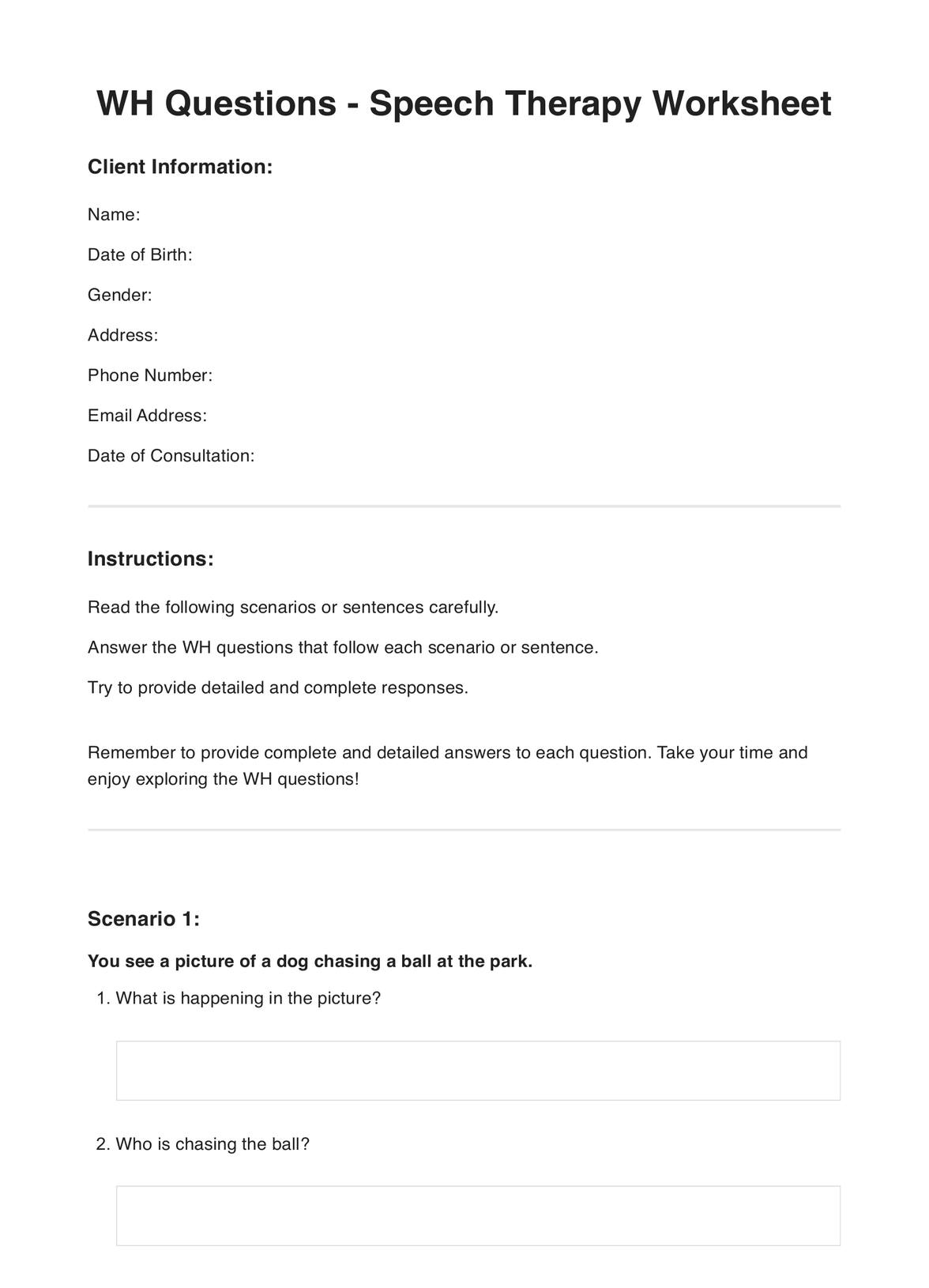Therapists can incorporate WH questions into therapy sessions using worksheets, verbal prompts, visual aids, or interactive activities. They can present scenarios, stories, or pictures and then ask relevant WH questions to encourage clients to provide detailed responses. The focus is guiding individuals to comprehend, process, and effectively answer the questions.

WH Questions Worksheet
Enhance therapy sessions with engaging WH Questions Worksheets. Improve communication skills through targeted questioning. Perfect for effective therapy.
WH Questions Worksheet Template
Commonly asked questions
Absolutely! WH questions can be adapted to suit individuals of varying ages, abilities, and developmental levels. Therapists can modify the complexity of questions, adjust the level of support provided, or choose age-appropriate scenarios or materials. This ensures the therapy is tailored to each individual's needs and promotes optimal learning and progress.
The frequency of WH question practice may vary depending on the individual's goals, therapy plan, and progress. Therapists consistently incorporate WH questions throughout therapy sessions, gradually increasing the complexity or difficulty as the individual demonstrates proficiency. Additionally, therapists may encourage individuals to practice WH questions outside therapy to reinforce skills and promote generalization.
EHR and practice management software
Get started for free
*No credit card required
Free
$0/usd
Unlimited clients
Telehealth
1GB of storage
Client portal text
Automated billing and online payments











